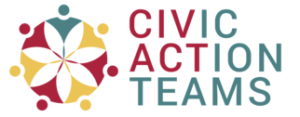DEMANDING A ‘JUST RECOVERY’ FROM BELOW: THE ROLE OF GRASSROOTS ACCOUNTABILITY ACTIVISM IN SAFEGUARDING LABOUR MIGRANTS’ RIGHTS IN THE PANDEMIC ERA
DEMANDING A ‘JUST RECOVERY’ FROM BELOW: THE ROLE OF GRASSROOTS ACCOUNTABILITY ACTIVISM IN SAFEGUARDING LABOUR MIGRANTS’ RIGHTS IN THE PANDEMIC ERA
PROJECT PURPOSE
What are the opportunities and limitations for grassroots accountability activism to assert the political potentials for a ‘just recovery’ for labour migrants in post-Covid Nepal? We seek to examine this overarching question. Using Covid-19 disaster as a site of political possibility, the research draws on the perspectives and experiences of labour migrants, youth activists and volunteers to understand the potential of grassroots activism in challenging intersecting inequalities facing labour migrants in the wake of the Covid-19 crisis in Nepal. The political possibilities and challenges of youth-led, bottom-up activism is being investigated in terms of its ability to construct alternative narratives of care and justice, and forge newer alliances to hold the State accountable to the voices of the returnee Nepali migrants.
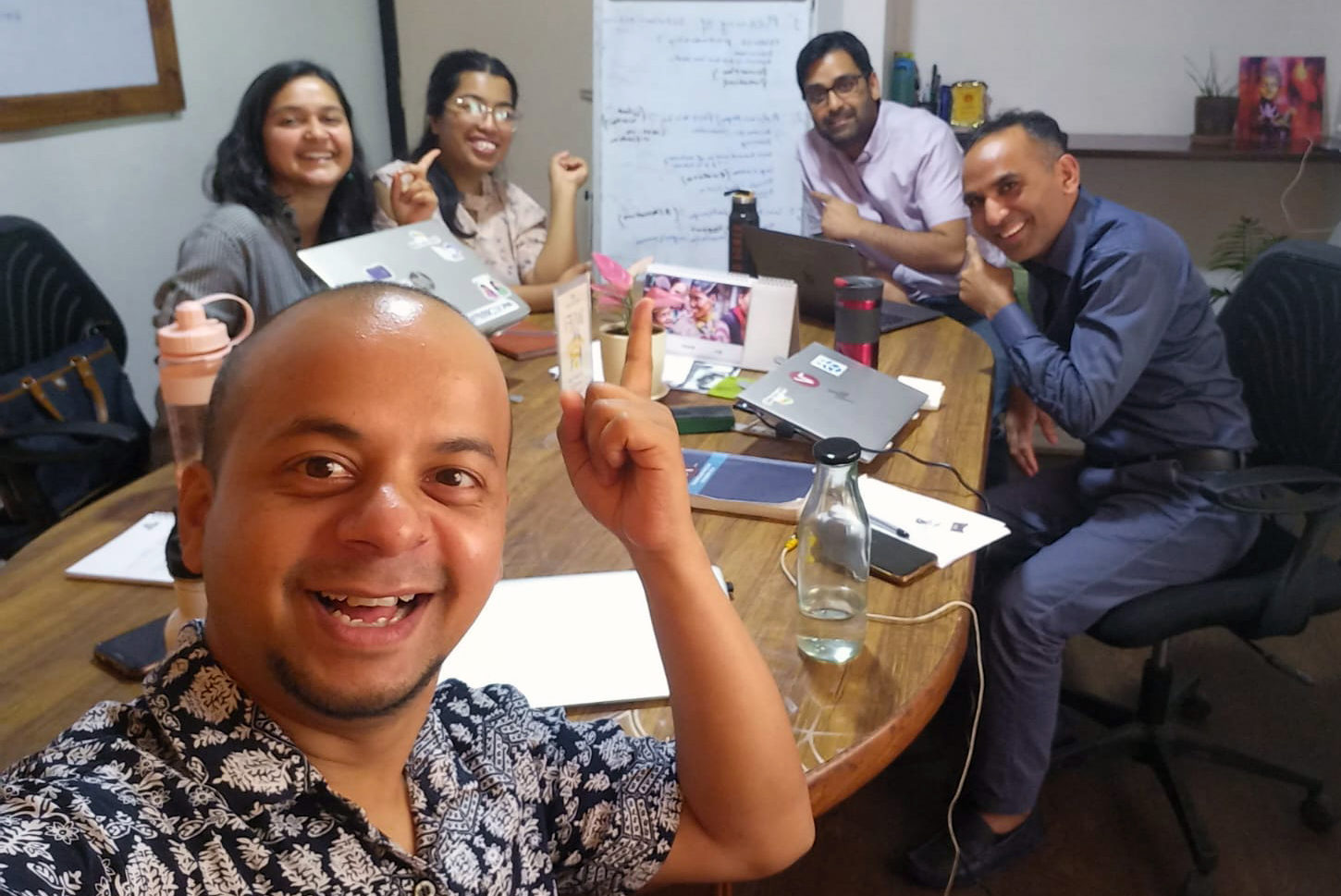
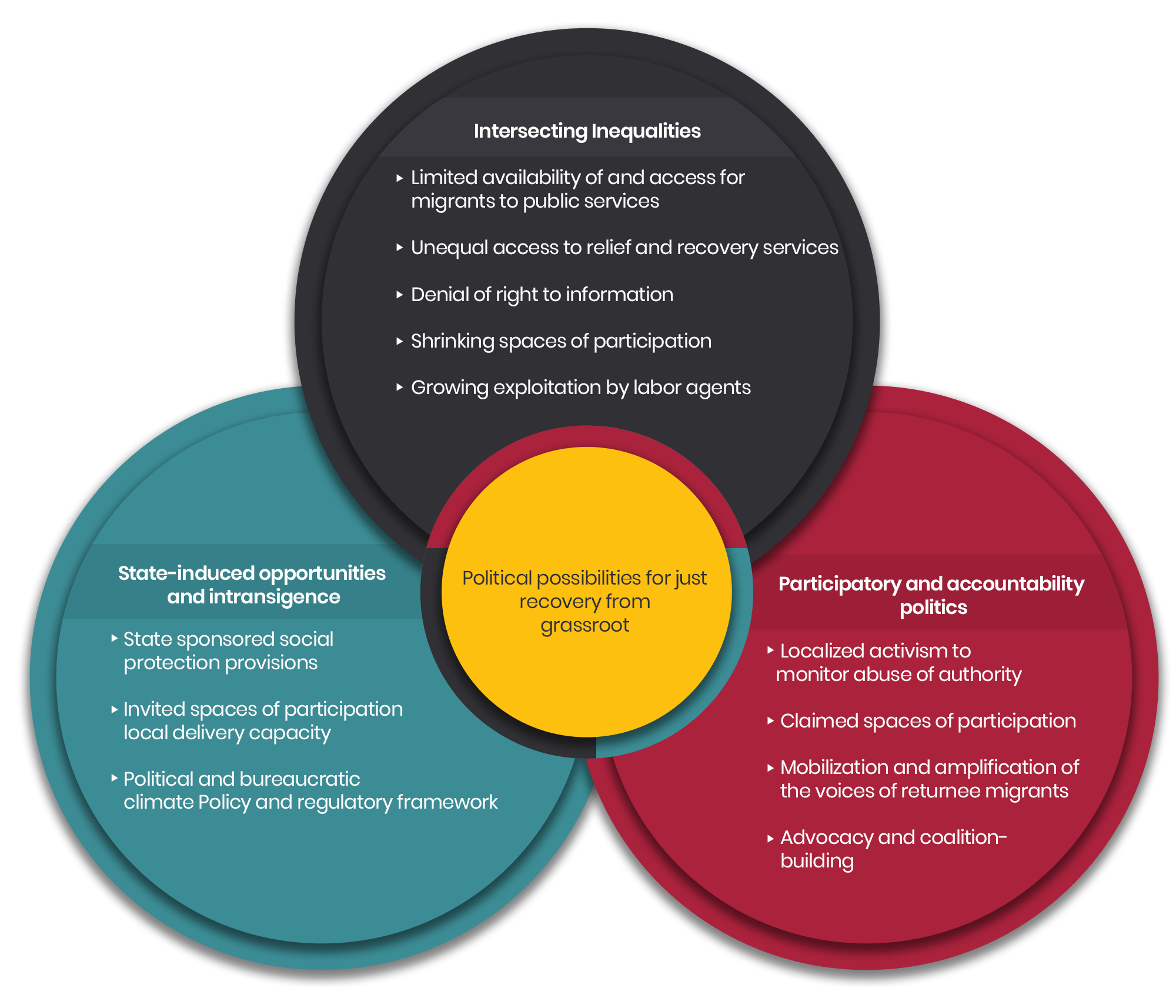
THROUGH THIS RESEARCH, WE INTEND TO:
Contribute to an improved understanding of the overlapping nature of Covid-19 induced inequalities facing labour migrants in Nepal;
Document the struggles and experiences of labour migrants in claiming their rights and entitlements vis-a-via the State;
Capture the experiences and struggles of local activists in promoting the rights and welfare of labour migrants, and to hold the State authorities accountable.
THE WORK:
The study is built on one of the project Co-PIs, Dr Nimesh Dhungana’s longitudinal research engagement with Accountability Lab (AL). In the wake of the Covid-19 pandemic, AL launched the ‘Coronavirus Civic Acts Campaign (CCC)’, with a professed goal to help document and alleviate various forms of disadvantages facing returnee migrants and other marginalised communities. The study, drawing on a mix of data sources, and with a strong focus on knowledge exchange and dissemination, examines the assumptions, aims and activities underpinning the AL’s campaign, CCC.
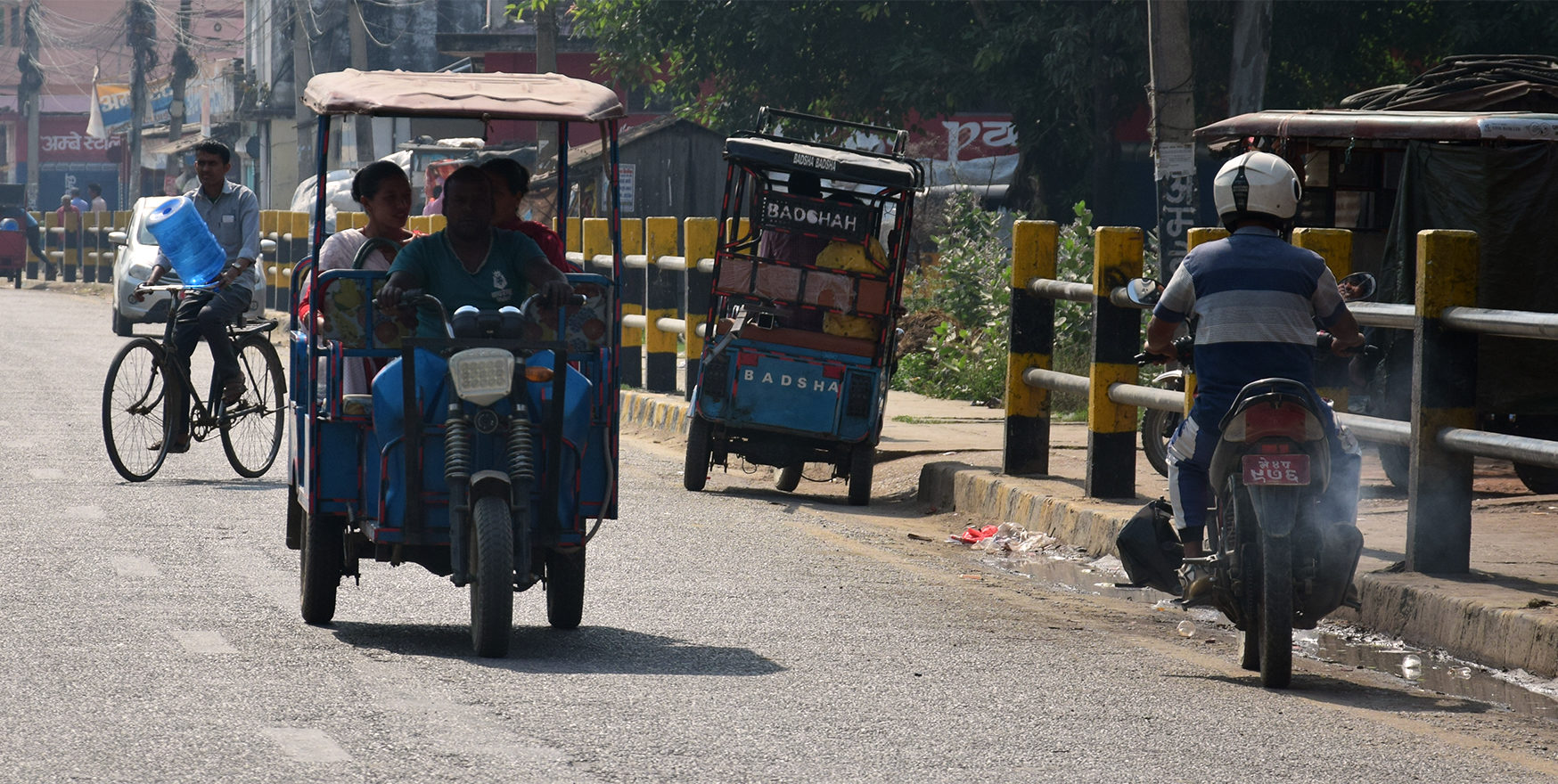
THE STUDY AIMS TO DRAW ON THE FOLLOWING DATA SOURCES:
Narrative and in-depth interviews: Narrative interviews will be conducted with 20-25 returnee migrants of various socio-economic characteristics. The interviews aim to uncover the migrants’ understanding of rights and entitlements, their setbacks, and ‘successes’ in securing routine and pandemic-specific government services from local authorities. The interviews will also focus on their experiences of engaging and collaborating with the grassroots activists in claiming their rights.
In addition, in-depth interviews will also be conducted with 20-25 activists who are part of the Accountability Lab’s CCC campaign. Interviews will focus on understanding ‘how’ the campaign is organised and implemented, its areas of accomplishments and struggles in promoting the returnee migrants’ ability to claim improved welfare provisions.
Participant observation: The project will involve and train local researchers in Nepal’s two districts to conduct participant observation of the unfolding of various activities at the local level, including community-level ‘public hearings’ involving local migrants and authorities.
Knowledge Exchange and Participatory Workshops/Meetings: The project will organise regular meetings and workshops with the campaigners, with the aim to reflect on their ‘activism in action’, promote dialogue and feedback, and foster ways of making their activism evidence-driven. One mini-conference will be held at LSE at the end of the project, to help bring the study’s insights to the international audience.
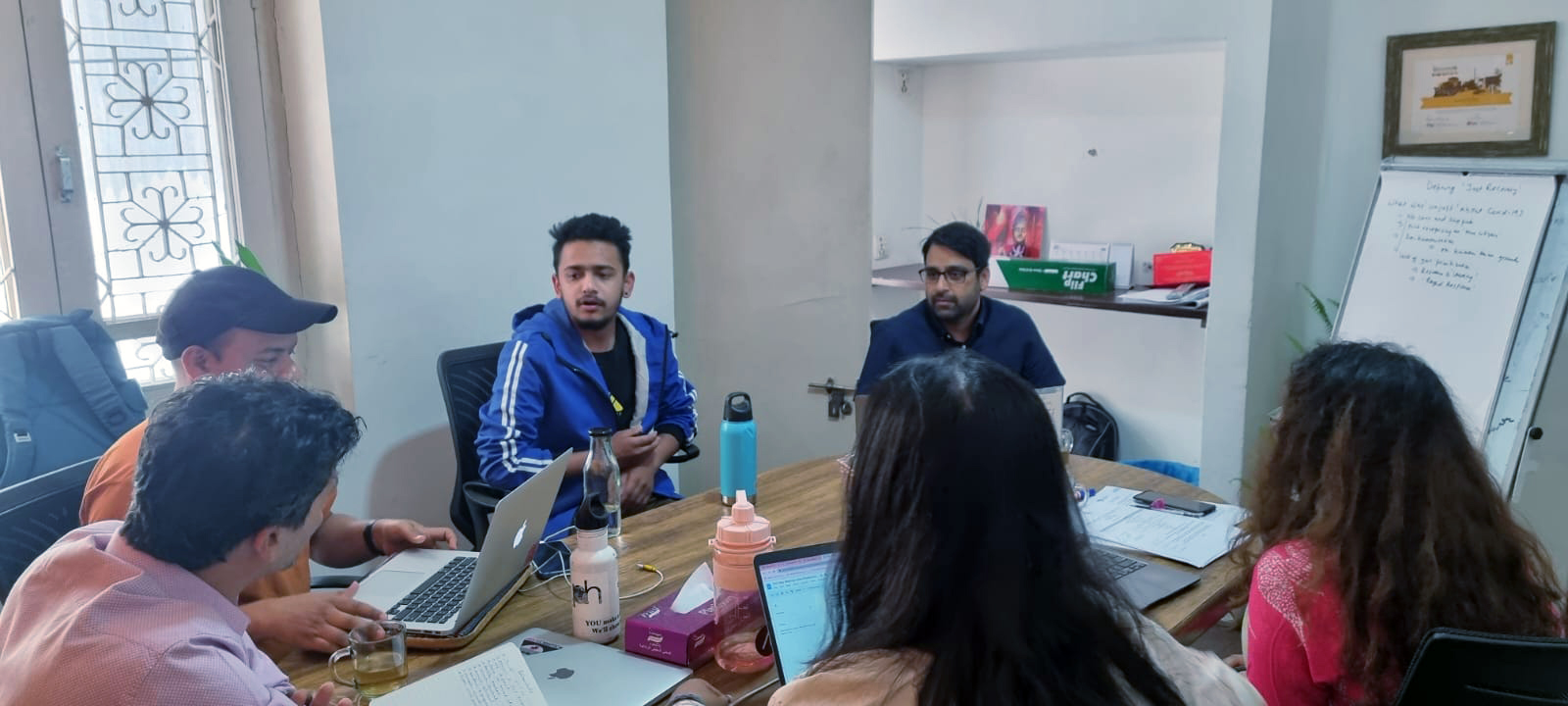
THE ACTIVITIES:
A two-day project workshop was held at the Accountability Lab’s office in Kathmandu (May 10 & May 16, 2023). The aim was to jointly reflect on the findings and challenges of the research, and to further consolidate the concept and practice of scholar-activist partnership as part of the broader vision to understand and improve the prospect of just recovery from Covid-19 in Nepal.
Project PI, Dr Nimesh Dhungana, presents the ongoing research findings at the United Kingdom Alliance for Disaster Research (UKADR) conference’s health and disaster risk reduction session, University of Edinburgh, December 7-8, 2022. The presentation stressed the need to bring further dialogue and collaboration between health and disaster researchers.
The project team members presented their research at the Development Studies Association Conference, University College London, July 6-8, 2022
Project Co-PI, Mr Narayan Adhikari talks about their ongoing activism at the People Versus Inequality podcast
Project PI, Dr Nimesh Dhungana, presents the research at the Hum-Gov Seminar Series, within the International Institute of Social Studies, January 19, 2022
The project team Prekkshya Bimali and Dr. Sanjay Sharma presented the excerpt of the research titled Disaster as a Catalyst for Injustice: Experiences of Nepali Foreign Labor Migrants during COVID-19 at The Annual Kathmandu Conference Nepal and the Himalaya 2023, on July 26-28, 2023
PROJECT MEMBERS:
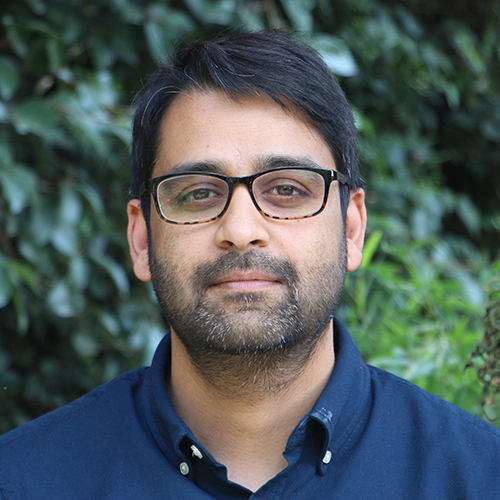
DR. NIMESH DHUNGANA
Lead Investigator
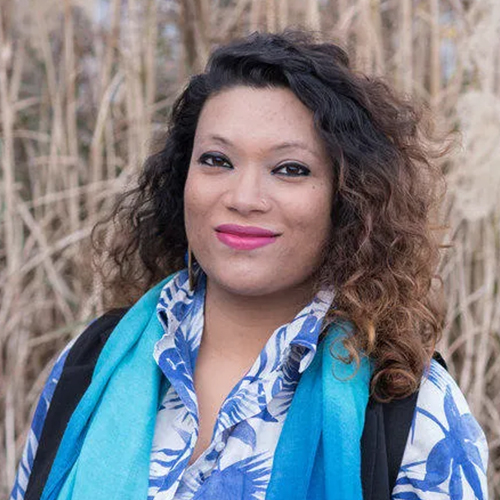
KRIPA BASNYAT
Co-Investigator
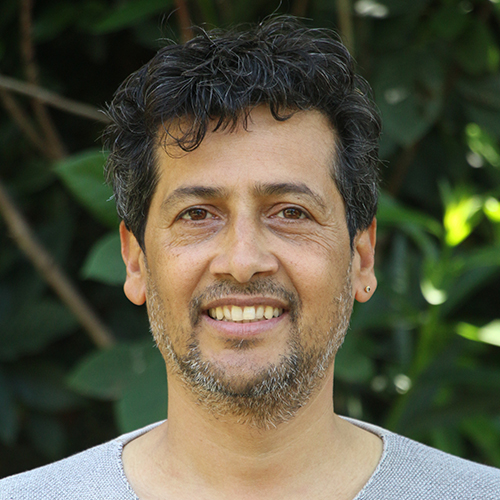
NARAYAN ADHIKARI
Co-Investigator of Practice

DR. FLORA CORNISH
Co-Investigator
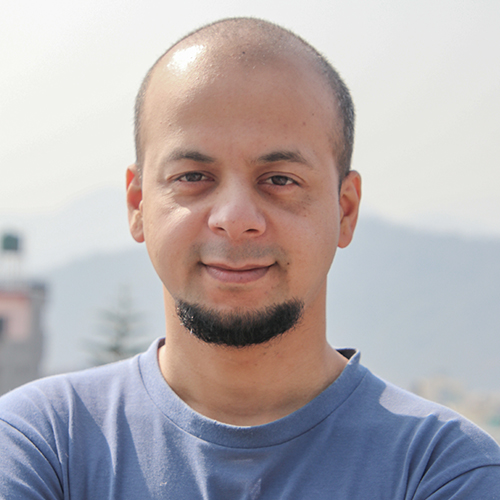
SANJAY SHARMA
Research Consultant
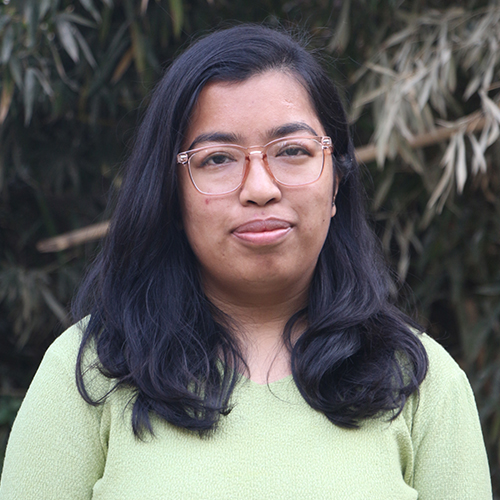
PREKKSHYA BIMALI
Research Officer
THIS RESEARCH IS SUPPORTED BY:

